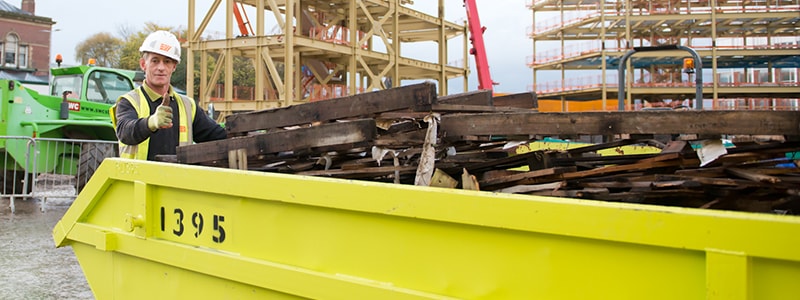
Series 2: Permits, Reducing And Recycling: Keeping Skip Hire Costs Down
10th May, 2017
In the second and final instalment in our series on how to keep your skip hire costs down, this week we’re back with tips on permit costs, restricted items and recycling. Who’d have thought there would be so many ways to save money on hiring a skip!
Permit Costs

These can be a big issue for lots of people. If you don’t have the room to put your skip on a driveway or front garden, you’ll need to plonk it on the public road instead. For that, you need a permit from the council. The costs of these are subject to a bit of variation depending on exactly where in the UK you live; the costs set by Manchester City Council, for example, may well be different from those set by Blackburn with Darwen Council. But take it from us here at Skip Hire Network; it’s vital that you do get this permit. Without one, you risk being caught and fined, the cost of which is likely to be vastly more than the permit. (Which makes sense, really – otherwise it’d be a very inefficient system!) It might seem like an irritating financial hurdle, but making sure you have it will definitely save you risking much more.
Avoid Restricted Items
Another entry in the category of ‘saving you on fines’, correct categorisation of waste is really important. We’ve explained it in more detail in previous blogs, but to give you the quick version: skip hire companies (including us) like to know what they’re taking. This makes sure that the waste gets sent to the right place for processing. If they find themselves having to separate it to remove restricted items before processing, they’re almost certain to pass the costs of that process onto you. It’s far easier for everyone for you to quickly check what you’re putting in it as you’re filling it up, to avoid any confusion and financial cost.
We’ve covered this in-depth before too, having written two blogs on what you can put in skips, as well as all the things you can’t.
Reduce And Recycle

These are both crucial elements in the “waste hierarchy” that guide what we do here at Skip Hire Network. To break it down quickly for you, the waste hierarchy refers to the order of ideal processes to deal with waste. Landfill is at the bottom as the least preferable, whereas reducing and recycling both come nearer to the top, as they’re far more efficient. After all, the less waste you have to get rid of, the cheaper skip hire is.
Minimising waste produced by your company’s industrial processes – or buying products with sustainable packaging for your family at home – are both great ways to ensure you end up with less waste. For the stuff you do find yourself with, extending its lifespan as much as possible by repairing it, or finding other uses for it, again ultimately means you’ll spend probably less on skip hire. For the bigger bits of waste like furniture, you can give them away or even sell them, turning it from a minor cost into a minor earner. Everyone’s a winner!
You might notice a common theme in both our blogs on saving costs on skip hire: forward planning. Being able to predict when you’ll need a skip (as well as how to use it most efficiently once it’s there) is key to saving on those pennies. And when you’re all good and ready, it’s good to know that we have your back at Skip Hire Network. Not only are we cost-effective, but we pride ourselves on our customer service too – plus, we help out charity! You can click here to find out how, or just go straight to our homepage to enter in your postcode and phone number, and start hiring a skip today!
Don’t forget to follow us on Twitter: @SkipHireNetwork
